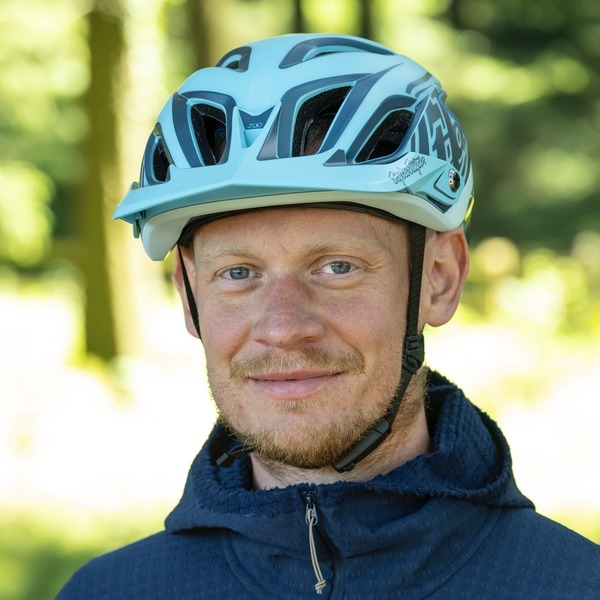Designed for all-mountain, aggressive riders, the Ride Concepts Transition shoe is certainly expensive, but dig into the detail and you find a broad array of features.
With impressive protection and secure foot hold on offer, and a super-stiff sole, can the Transition justify its price tag?
Ride Concepts Transition specifications and details
The sole is a bulky looking unit, with a DST 8.0 MID GRIP rubber used throughout. Repeated hexagonal treads feature over the whole of the sole.
The nylon shank extends from heel to toe, making this one of the stiffest shoes I've tested recently. However, provision for walking is made with a toe that turns up at the end, to help the foot roll forwards as you walk.
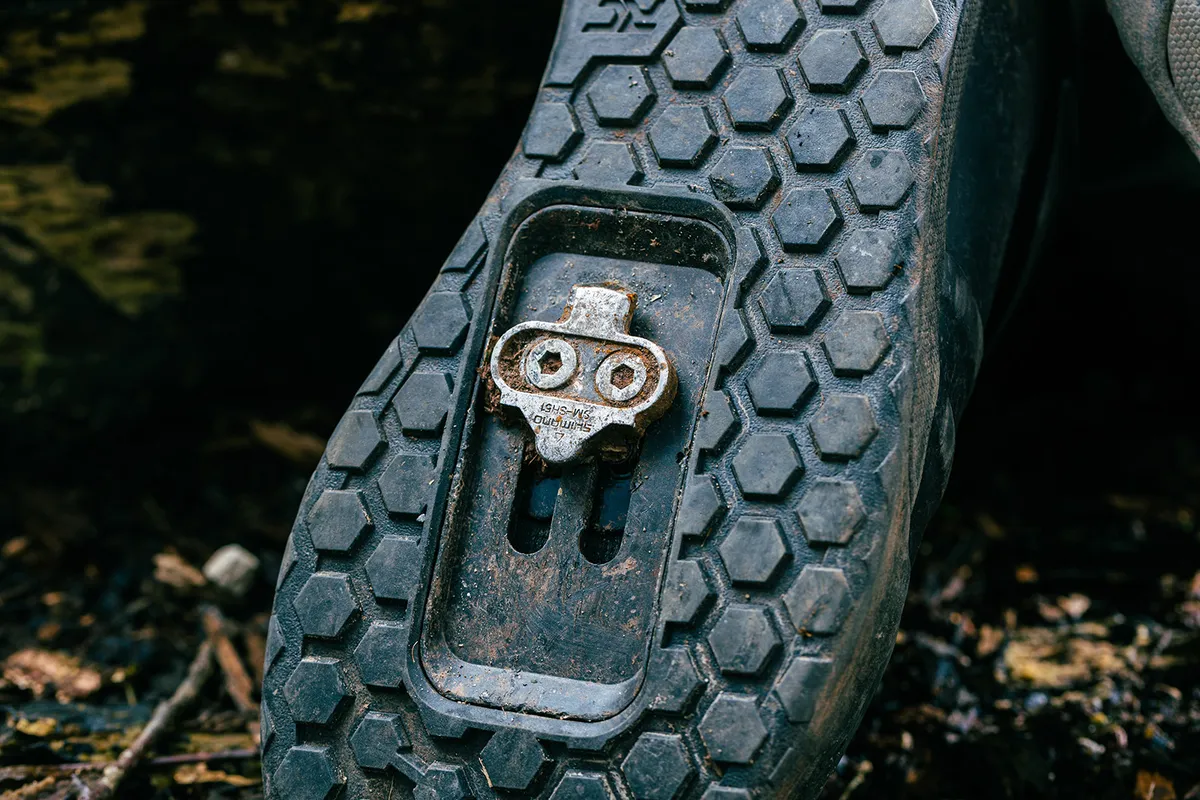
The cleat bed is well-positioned under the foot, with the 36mm cleat channel nice and long, and far enough back in the shoe to allow for a stable position over the pedals.
Internally, D3O is used to give impact protection – this is a soft material that hardens under impact, spreading the impact force over a wider area.
Plenty of padding and protection contributes to a high 1,124g weight. The insole is fairly flat in profile, but there's some D3O padding underfoot as well as arch support.
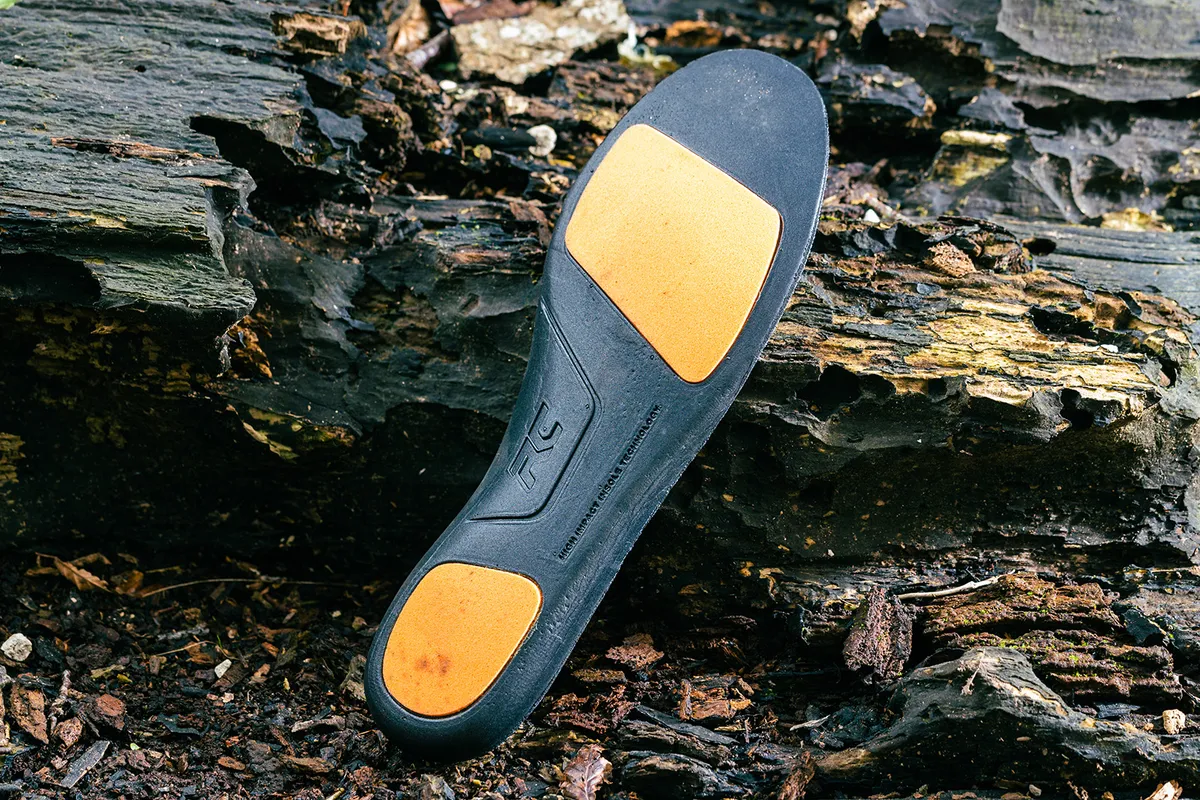
The inside ankle extends high with thick padding to offer protection.
Laces secure the shoe, along with a broad Velcro strap over the top. These cover a thin but sturdy feeling tongue, which has baffles all the way to the sole – there to reduce debris working its way under your feet.
Both toe and heel areas have ample reinforcement against rock strikes, as well as scuff panels at the side of the shoe. Ventilation is taken care of by a mesh section over the toes.
Ride Concepts Transition performance
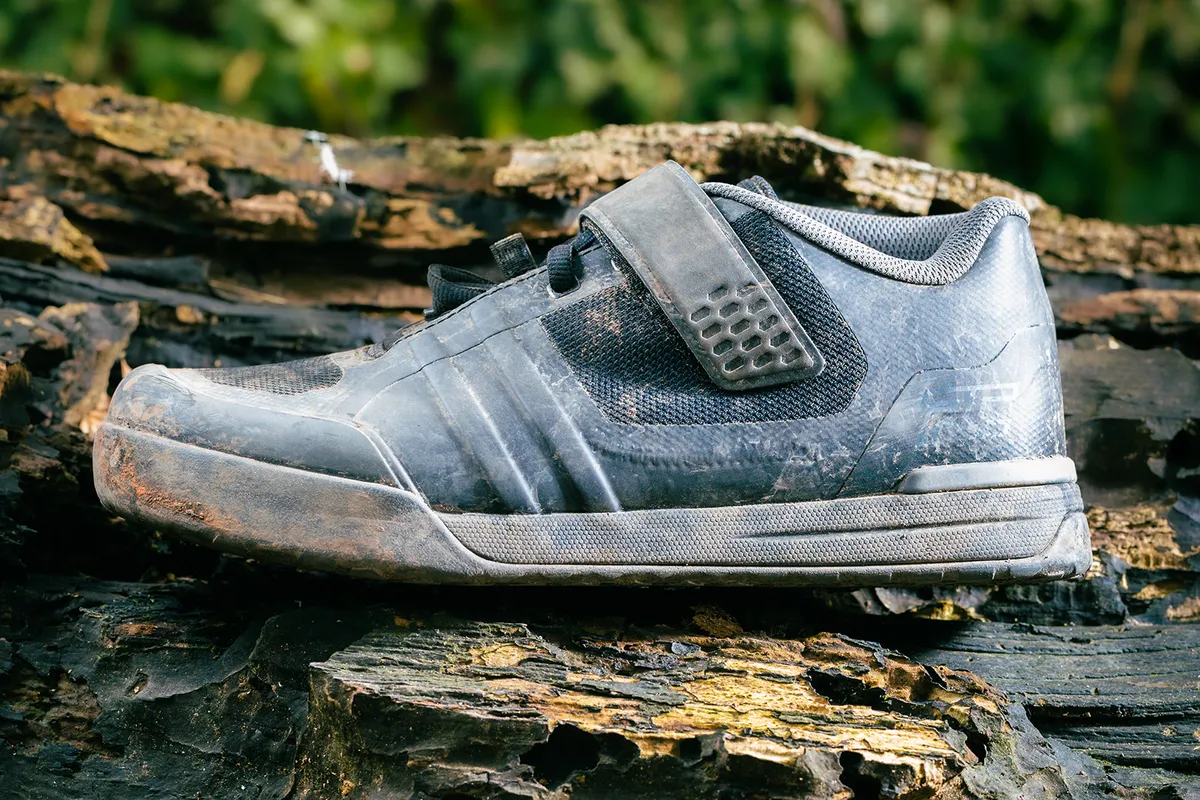
The Transitions are some of the bulkier shoes in our test, and they feel solid and sturdy. Your feet are nicely enclosed, with a high ankle contributing to this secure feeling.
The upper is stiff, but not so much that your feet have no room for movement. They aren't vague in feel, but they don't have quite the same sharpness as a lighter, pared-down pair of shoes, such as the Specialized 2FO Cliplite or Leatt DBX 6.0.
Thick mesh panels over the toes and at the side of the feet do their best to keep your feet cool, but the bulk is always going to contribute to a warmer than average shoe.
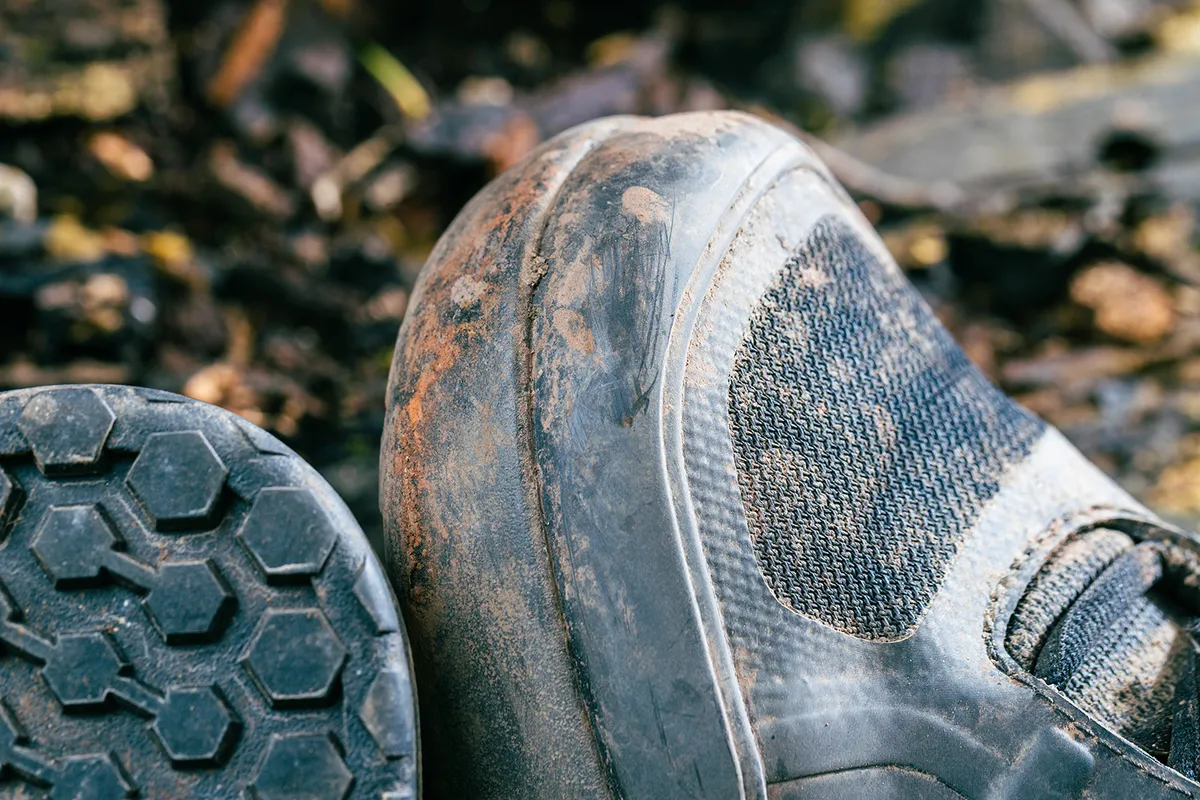
Thick laces secure the shoe, while moderate levels of eyelet friction mean loosening or tightening the shoes is a slower job than it might otherwise be.
While tension can be concentrated in the upper reaches of the foot when the laces are first tied, the tension evens out nicely during the early part of your ride, contributing to the comfortable feel.
The Velcro strap works with the profiled heel cup to give decent heel hold.
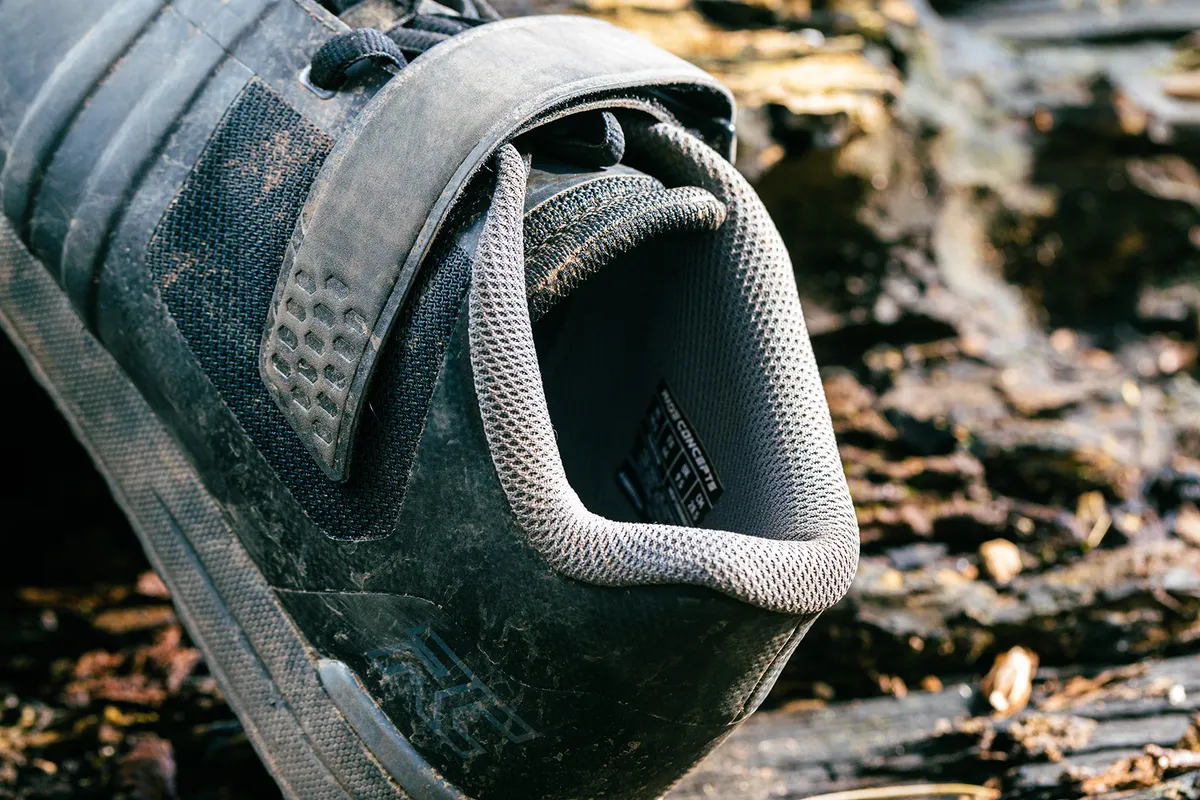
At 1,124g, these shoes are heavy from the outset. In wet conditions, they hold a lot of water too, further adding to their mass.
Given the ample volume of foam padding, it's no surprise that they're slow to dry.
The D3O inserts in the lower portion of the shoe help keep comfort levels high.
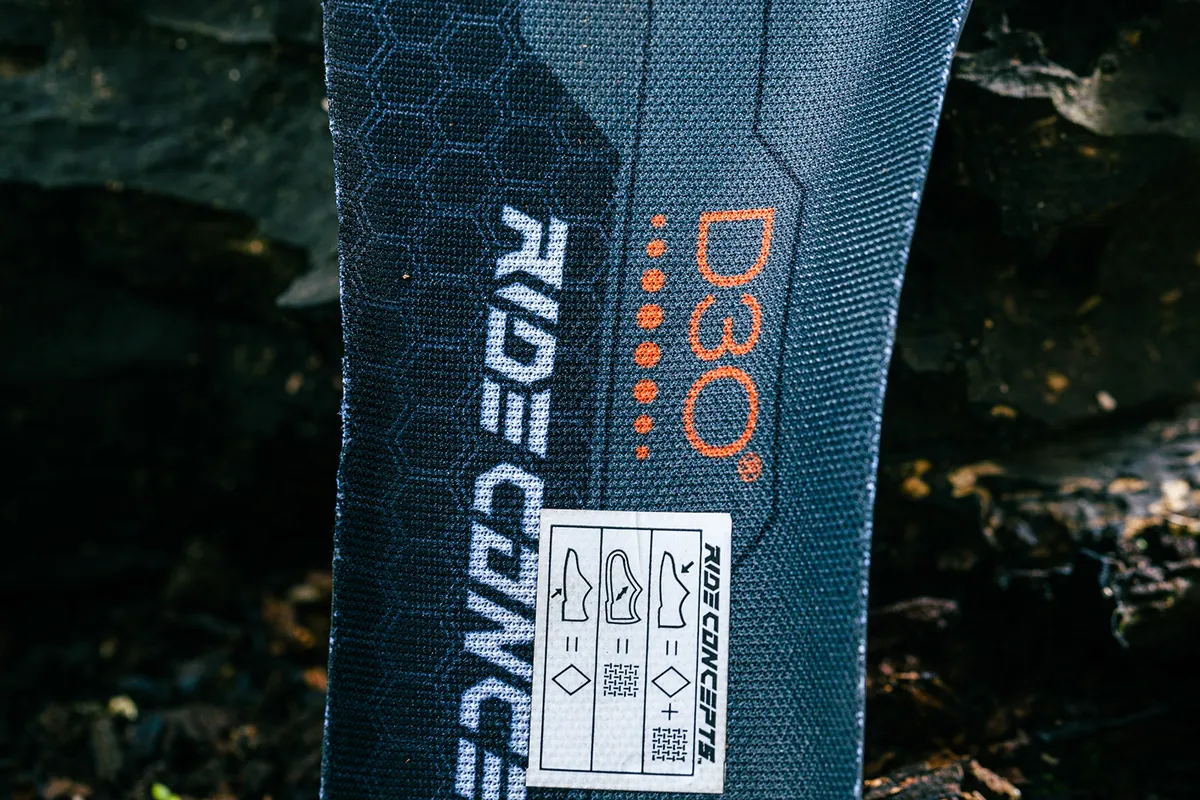
Bigger hits feel slightly muted, trail chatter is diminished a touch and walking is comfortable. There's also no hint of the cleat's presence through the insole.
The shank is one of the stiffest we've tested recently, and so while power transfer is excellent, they feel a tad awkward when walking.
You can just feel the pedal through the sole, but it's numbed compared to some other shoes, where a hint of flex enables you to really feel the pedal beneath your foot.
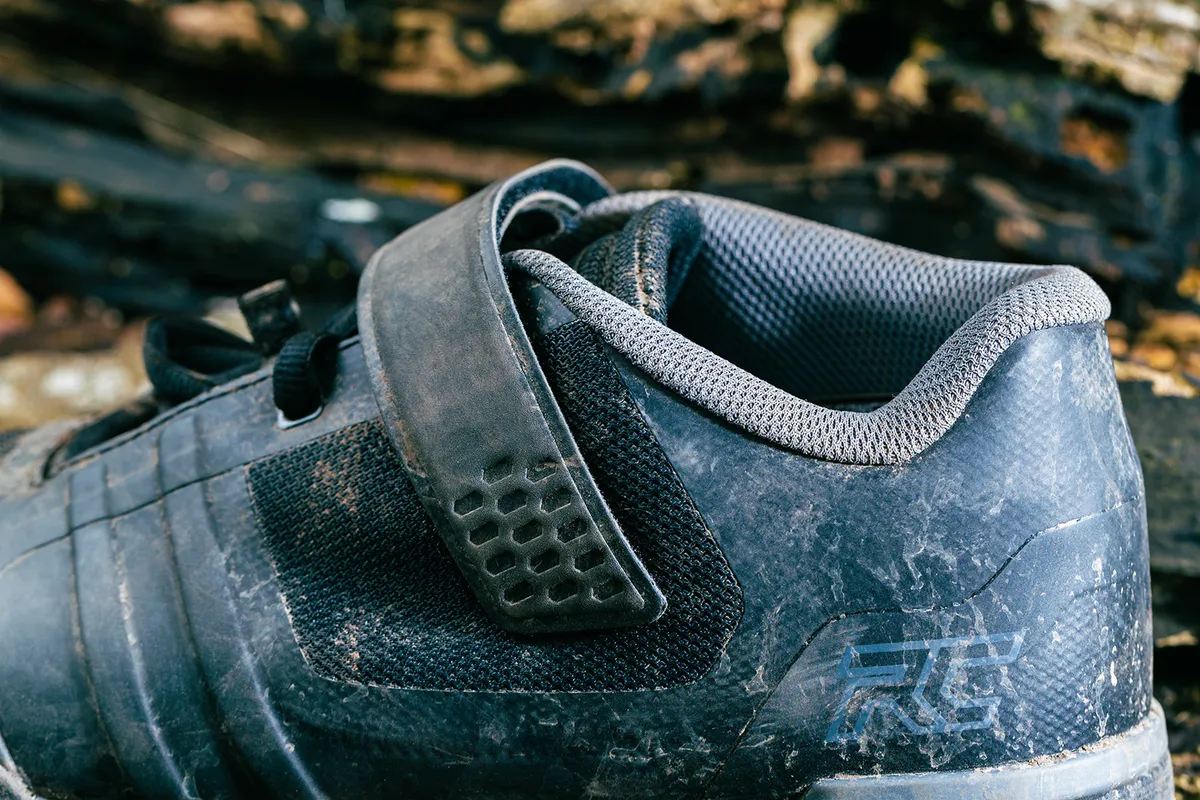
The shallow tread connects well with pedal pins, so lateral adjustments to the bike via the pedal are possible. RC says that a cleat shield needs to be in place with Crankbrothers' cleats to prevent damage to the bottom of the shoe.
With Shimano cleats, it's less necessary, but we found a thin spacer helped prevent the rubber of the sole binding too much on pedal pins.
Ride Concepts Transition bottom line
The Transitions are a serious pair of shoes, suited to the more gravity-focused rider.
They're heavy, relatively warm and take an age to dry when they get soaked, but this is countered by the epic levels of foot protection on offer and the stiff sole that transfers every punch of power.
How we tested:
Mountain bike shoes have a hard life. All your power is transferred through their soles, as well as an awful lot of bodily bike control.
At the same time, they’re stamped onto pedals (some of which have platform cages with sharp pins), are walked in on rough surfaces, have to sit in the firing line of mud and water, and shrug off impacts with trailside rocks, roots and vegetation.
As such, the best mountain bike shoes have to satisfy a wide range of requirements to reach the top of our table. In this group test, we pitted 12 pairs of clipless shoes from leading brands against each other during several months of sloppy winter testing.
We tested all these shoes with both Crankbrothers and Shimano SPD pedals to check that they’re compatible with the most common platforms. They were ridden with one foot in one brand of shoe and the other in a different type, to better grasp their differences.
Steep banks were scrambled up and down, while we carried our bikes on our shoulders to see how much our heels slipped in the heel box and our feet slipped in the mud. We even sprayed them with a hose to see how water-resistant they are, then timed how long they take to dry out.
Other shoes we tested:
- Bontrager Rally review
- Crankbrothers Mallet Speedplay
- Endura MT500 Burner Clipless review
- Five Ten Kestrel Lace review
- Fizik Gravita Versor Clip review
- Giro Berm Cover review
- Ion Rascal Select BOA review
- Leatt 6.0 Clip V22 review
- Mavic XA Elite II review
- Scott Crus-R review
- Shimano AM5 review
- Specialized 2FO Roost Clip review
Product
| Brand | Rideconcepts |
| Price | £150.00, $160.00 |
| Weight | 1124g |
Features
| Shoe closure | laces |
| Shoe closure | velcro |
| Cleat fitting | 2bolt |
| Sole | DST 8.0 MID GRIP Rubber |
| Features | Sizes: 36 – 42 Upper: Welded microfiber Toe cap: Custom-molded rubber protection Heel: Custom-molded rubber Colours: Black / Charcoal, Black / Lime, Charcoal / Red |

